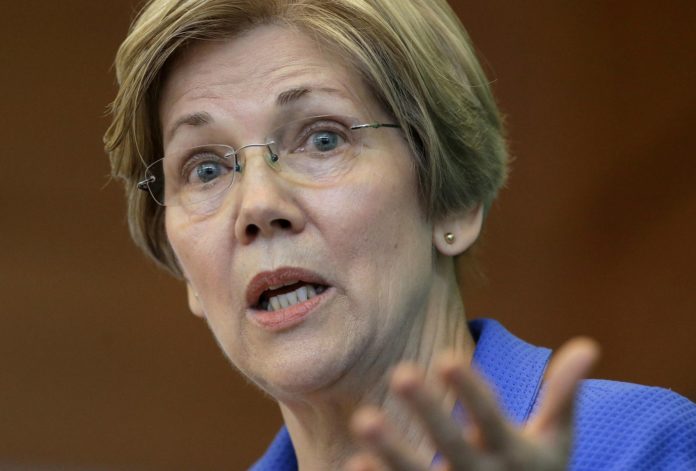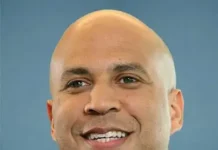Look at the origins of most of the era’s largest major investment failures and you will often see hedge funds as being the primary cause.
The heavy reliance by hedge funds on leverage, financial engineering, exotic strategies that involve bets on price moves in regulated and off-exchange markets, often evade scrutiny from regulators, even if they have the capabilities to analyze the trades and positions in the first place. Too often, regulators conduct auditing autopsies involving teams of forensic accountants to unravel these trades before they can even understand what happened.
This seems to be the case in the latest instance for the forced liquidation of more than $20 billion in holdings from Archegos Capital Management that has created an avalanche of liquidations on a few continents.
“The chain of events set off by this massive unwinding is yet another reminder of the role that hedge funds play in the global capital markets,” according to a report in Bloomberg. ” A hedge fund short squeeze during a Reddit-fueled frenzy for Gamestop Corp. and other shares earlier this year spurred a $6 billion loss for Gabe Plotkin’s Melvin Capital and sparked scrutiny from U.S. regulators and politicians.
“The idea that one firm can quietly amass outsized positions through the use of derivatives could set off another wave of criticism directed against loosely regulated firms that have the power to destabilize markets,” Bloomberg said.
No Regulation for Hedge Funds
The reason why investors love hedge funds is that they are largely unregulated in the U.S. and promise outsized returns. This appeals to libertarians and other big investors who hate regulatory scrutiny and want the shiniest financial object in their portfolios. These investors like the rarified atmosphere of hedge funds, but often look the other way as these managers continue to sell claims of out-performance to investors who want bragging rights at their next social gathering.
While this industry has spent hundreds of millions in lobbying to prevent regulations over the last few decades, the time may be right for Congress to revoke the carried interest tax loophole. This is the esoteric tax interpretation that allows the bad boys of modern finance–hedge funds, private equity, and real estate developers–to pay taxes at the capital gains rate versus ordinary income rates. The loophole costs the federal coffers billions in lost revenues, so Congress has looked the other way for years to give these tax evaders a clean getaway.
Revoke the Carried Interest Loophole
Carried interest is a nerdy accounting term that allows private equity, real estate developers, and hedge fund managers “to mischaracterize their earnings as capital gains rather than income,” according to Patriotic Millionaires University. This group says private equity and hedge funds claim “they are in a ‘partnership’ with their investors, and that their earnings should be classified as capital gains instead of income (because they’re investing their time and expertise into the firm).” But this is the same definition any small business can make about how they work. The big difference is that they pay a higher tax rate.
Hedge and private equity firms love this loophole since it allows their owners to reduce tax bills by about half. This happens because they are taxed at a much lower capital gains tax rate, just 20%, rather than the top income tax rate of 37%.
So what’s the real impact of allowing this loophole to continue?
The best summation comes from the Patriotic Millionaires who said: “The carried interest loophole is an absurd mischaracterization of income that allows about 5,000 of the richest people in America to divide (conservatively) $1.8 billion a year between themselves, for an average tax break of $300,000 a year.”
Meanwhile, reformers who want to close this loophole contend these private equity profits should be treated as regular income and not be subject to special tax treatment. This is the same treatment most other businesses, large and small face. The big difference is that they have no paid hundreds of millions in lobbying fees to get their preferential treatment codified.
IF DEMOCRATS WANT TO RESTRAIN THREE OF THE MOST PREDATORY FINANCIAL INDUSTRIES—PRIVATE EQUITY, HEDGE FUNDS, AND REAL ESTATE DEVELOPMENT—THEY MUST CLOSE THE CARRIED INTEREST LOOPHOLE.
Who Opposes the Carried Interest Tax Loophole
Money talks and money controls the politicians who want to prevent the closing of this critical tax loophole. This includes the Republicans and corporate Democrats who readily take Wall Street lobbying money, such as Chuck Schumer.
How much money are we talking about? The 25 highest-earning hedge fund managers and traders made a combined $24.3 billion in 2013, according to Nathan Vardi in Forbes. This is an old number, but it explains where the lobbying money came from.
This is also an old issue. In the 2012 presidential campaign, candidate Barack Obama roundly criticized Republican candidate Mitt Romney for his profits from the carried interest loophole. He made a powerful argument that should be repeated today.
“Exactly how much Mr. Romney benefited from the carried-interest loophole could not be determined, since he refused to release his tax returns before 2010. But as a former Bain Capital partner, he received substantial carried interest — 31 percent of his 2010 and 2011 income, The Boston Globe reported,” according to the New York Times.
So What Should Congress Do?
Reintroduce Sen Elizabeth Warren’s Stop Wall Street Looting Act.
Sen. Warren (D-Mass.) introduced legislation in 2019 to reform private equity. The bill had a solid core of progressive and very liberal Democrats who supported the bill. As expected, no Republicans supported the bill and worked hard to prevent it from advancing in Congress.
And in one of his sociopathic plays towards the liberals, ven candidate Donald Trump campaigned on eliminating the carried interest loophole, which was a patent lie when he said it, but it appealed to his naive base.
Here’s what was in the Warren bill:
- It would convert capital gains attributable to carried interest to a higher ordinary income rate;
- It would impose more stringent limitations on interest deductions for leveraged investment funds;
- And, it would effectively impose a 100% surtax on fees paid from target companies to investment advisors.
As expected, Republicans and others who benefit from this loophole will claim they are integral elements of the financial system. They are not. One false claim came from Anthony Scaramucci, head of SkyBridge Capital, who said hedge funds create jobs. Maybe, but not many. Hedge funds rely on computers, not large staffs. Hedge funds are also focused on finding free money anywhere in the financial system, including the federal government.
This is why executives at some hedge funds (the number is now not clear) were reclassifying themselves as “small businesses” in order to qualify for the small business loans in the $349 billion Paycheck Protection Program administered by the Small Business Administration.
As this Bloomberg article found, some hedge funds have filled out the paperwork claiming “they have fewer than 500 employees and certifying the ‘current economic uncertainty makes this loan request necessary to support the ongoing operations.’”
Time to Re-Introduce Warren’s Bill to Close the Loophole
Just as the nation has a serious problem with mass shootings involving automatic weapons, the financial system has a major problem with unregulated investment firms that regularly use every trick in the book to gain a trading edge and not pay taxes.
These firms operate on the fringes of regulations, just as Trump did for his entire career, and we all see where that got us. The only difference is that the beneficiaries of the carried interest tax loophole have hard currency and they spread it around to politicians from both parties.
So, if America wants more mass shootings, allow the unfettered sale of assault rifles.
If America wants bigger, more frequent financial meltdowns, and wants to encourage predatory capitalism, keep the carried interest tax loophole in place.
If not, pass Warren’s Stop Wall Street Looting Act bill.











